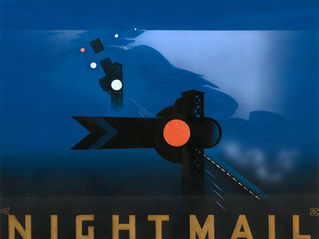Zoltàn Korda: Cry, the Beloved Country in Budapest
- Charles Drazin
- Sep 22, 2025
- 3 min read
Updated: Jan 27

It is difficult to beat the beauty of Budapest cinemas. Here I am, last Saturday night, being pulled into the infinity of the lobby mirrors of the Urania. And I can slide back through my memories of Budapest to 8 September 2019, when I had the pleasure of being able to see Casablanca in the equally splendid Pushkin, a cinema that is now nearly a hundred years old.

This weekend I was in town for the Budapest Classics Film Marathon, where I introduced a film directed by Zoltàn Korda: Cry, the Beloved Country.

Below is – more or less – what I said:
It is now a year since Zoltàn Korda’s son David Korda died – on 18 September 2024.
I used to work with David in London. One of the things he very much wanted to do was to write a book about his father. Unfortunately that cannot happen now. But I’m very pleased to have this chance to say a few words about Cry, the Beloved Country, and I do so in memory of David.
It’s a particularly good film with which to remember him, because one of its themes is about fathers and sons. It is the story of a black priest in South Africa who travels to Johannesburg to try to find his son. There he discovers a society that is breaking down under the impact of racial intolerance and injustice.
Of all the films that Zoltàn directed, Cry, the Beloved Country was the one that mattered most to him. It was the one in which he was free at last to say what he wanted to say rather than what his producer – his older brother Alexander Korda – told him to say.
Alex, who was a big supporter of Sir Winston Churchill, was very conservative in his politics, whereas Zoltàn was progressive. It was Alex who, before the war, greenlit such imperialist epics as Sanders of the River, The Drum or The Four Feathers, and it was poor Zoltàn, who, much against his own political beliefs, had to direct them.
Made a few years after the war, in 1951, Cry, the Beloved Country was Zoltàn’s way of atoning for those earlier films. Alex, who loved his brother, knew that now he had to allow Zoltàn to have a free hand, even though he thought it was an uncommercial film, and he probably would have preferred not to make it at all.
Cry, the Beloved Country offers an eloquent, passionate attack on racial inequality. Although it was a story set in Apartheid South Africa, it also implicitly provided an indictment of racial intolerance in the United States more than ten years before the US Supreme Court outlawed segregation. In making it, Zoltàn was notably ahead of his time. He dared to do what America’s own powerful film industry had failed to do: address the iniquities of a racist society.
The film features black actors rather than white stars. But at the same time it is notable for the early appearance of an actor who would go on to become a major Hollywood star: a young Sidney Poitier. Although Poitier has only a supporting role, you can see in every frame that he's going to become a big star: he has that quality of what the French call "smashing the screen": il crève l'écran. This is the film, it seems to me, that puts him on the road to the 1967 film In the Heat of the Night, when Hollywood – albeit it many years too late – was ready at last to speak out against racial injustice.
Cry, the Beloved Country is a film that aims very high. Determined to deliver a moral message, it is sometimes a bit stiff and awkward. But it is in its determination to demand justice that lies the film’s greatness: for after all, as the great British director, Lindsay Anderson, once said, “No art is worth much that doesn’t try to change the world.”
Having given this introduction, I could not help but think of what my Hungarian friends had told me about the Budapest Pride march that had taken place a few weeks earlier. Although it had been banned, an estimated 200,000 people took part in an event that was a celebration of LGBT rights but also an impressive stand for freedom. It offered a welcome reminder that people can change the world if enough of them make the effort to do so.













Comments